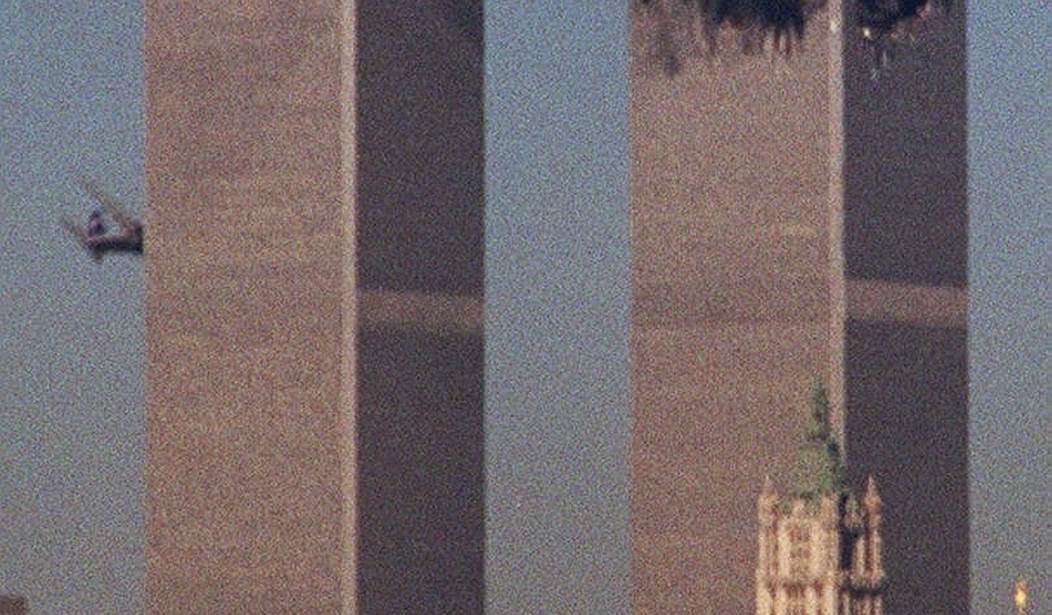NPR on Saturday ran an enthusiastic, bubbly puff piece about “free walking tours” that take place “about once a month to remember centuries of Muslim history in New York City.” Gee, that’s swell. But it does raise an inevitable question: isn’t there a site in New York City where Muslims had an enormous impact on that city, the United States, and the entire world? What is its name again? Why is it left out of this tour?
These are not snarky questions. They raise a larger issue: why must all Muslim history in the West be presented as positive? The same favor is not accorded to Christianity or any other religion; nor should it be. Why is whitewashing Islam mainstream and accepted, and telling the truth about Islam demonized and stigmatized? Would NPR ever run a puff piece about a walking tour of Christian history in New York City that resolutely ignored every possible negative aspect? Not on your life. And there’s the rub.
It gets worse. According to NPR, the tour guide, Katie Merriman, “speaks about American jazz musicians who performed at the theater and converted to Islam in the 1950s after touring abroad. She also plays a clip from John Coltrane’s A Love Supreme and explains how some interpret it as a dhikr, or Sufi Muslim remembrance prayer. ‘John Coltrane never claimed this as saying “Allah Supreme,” but many people are sure that he wanted you to not be sure,’ Merriman says.”
Now wait a minute. Even within the parameters of this tour and its determination not to notice the place where two massive towers used to be, why must non-Muslims and their achievements be appropriated? Claiming that John Coltrane’s masterpiece A Love Supreme was “a dhikr, or Sufi Muslim remembrance prayer,” and that “people are sure that he wanted you not to be sure” whether or not he was saying “Allah Supreme” rather than “A Love Supreme,” is simply absurd. Why? Because the album cover says “A Love Supreme.” The liner notes, which were written by John Coltrane himself, say “a love supreme” three times, and nowhere says “Allah supreme.” He repeats this phrase several times during the first part of the suite, “Acknowledgment,” and he is quite audibly saying “A love supreme,” not “Allah supreme.”
So how does Katie Merriman, or the “many people” she invokes but does not name, know that Coltrane “wanted you not to be sure”? I myself have read four full-length biographies of the man, and nowhere in any of them is he ever quoted as saying anything of the kind. Katie Merriman’s “many people” just made it up, because they want to believe it to be true. A 2014 Al Jazeera article has the saxophonist Yusef Lateef, himself a convert to Islam, asserting this, but this is solely his own assessment, not based on conversations with Coltrane or any other inside knowledge.
No doubt Coltrane was aware of Islam and had some interest in it. His first wife, Naima, was a convert to Islam. But in an age when jazz musicians all around him were converting to Islam, Coltrane never did. In the liner notes to his follow-up to A Love Supreme, the turbulent, heartfelt, magnificent Meditations, he says “I believe in all religions.” No pious and knowledgeable Muslim would say that, as to do so would involve him in shirk, the foremost sin in Islam, the association of partners with Allah in worship. (And the first part of the Meditations suite is entitled “The Father and the Son and the Holy Ghost.”)
In the Al Jazeera piece, Lateef notes that the phrase “All praise to God to whom all praise is due” (which he misstates as “All praise to God no matter what”) from A Love Supreme’s liner notes “has the semantics of the al-Fatiha, which is the first chapter or sura of the Holy Quran.” All right. But there is one quotation from another source in Coltrane’s liner notes to A Love Supreme: “Seek and ye shall find,” which Jesus says in the Gospel of Matthew (7:7). Even the Islamic site IslamQA, when it wants to emphasize that Allah answers prayer, quotes this phrase from the Gospel, not from any Islamic source. If anything, A Love Supreme is a Christian prayer, not a Muslim one, but clearly it is neither one. It is, rather, a prayer that he intended for everyone, of every religious tradition, to be able to repeat.
John Coltrane was baring his soul and being nakedly forthright in those liner notes, and in the music they accompany. He wasn’t playing games or indulging in riddles. If he had wanted to say “Allah supreme,” he would have done so.
Coltrane was not a Muslim, and A Love Supreme is not a dhikr, so why drag him into this walking tour? Is there so little actual Muslim history in New York City that some of that history has to be fabricated?
And again, what about that large site in lower Manhattan where Muslims had a real impact on New York City?
Robert Spencer is the director of Jihad Watch and a Shillman Fellow at the David Horowitz Freedom Center. He is author of the New York Times bestsellers The Politically Incorrect Guide to Islam (and the Crusades) and The Truth About Muhammad. His new book is The History of Jihad From Muhammad to ISIS. Follow him on Twitter here. Like him on Facebook here.










Join the conversation as a VIP Member